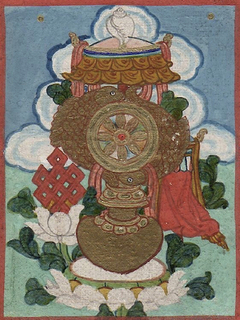Auspiciousness Series
English (10) | Deutsch (2) | Español (2) | Français (6) | Português (1) | 中文 (1) | བོད་ཡིག (10)
A selection of texts on the theme of auspiciousness (maṅgalam; bkra shis) including verses of auspiciousness (maṅgalagāthā) and prayers:
